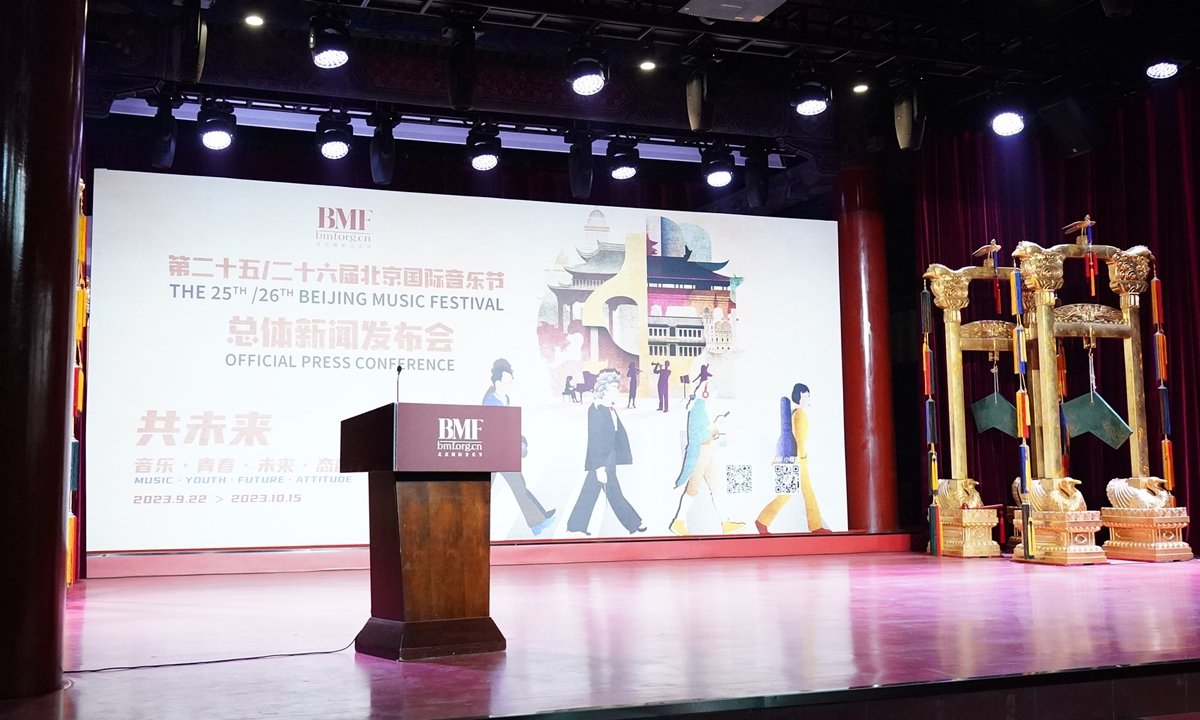The historic Temple of Heaven Park, often a symbol of China’s rich cultural past, became a stage to announce the future of classical music. The ancient walls of the Divine Music Administration building resonated with anticipation as details about the 25th/26th Beijing Music Festival (BMF) were unveiled at a press conference this past Wednesday.
In a celebration themed “Music, Youth, Future, Attitude,” the festival promises to be an ode to the vibrancy of classical music, shining a spotlight on its evolving future while preserving the reverence of its past. The festival, which kicks off on September 22 and concludes on October 15, is a musical extravaganza spanning 24 days. During this period, attendees will be treated to 25 distinct performances, covering an array of genres. But what stands out in this edition is its deliberate focus on the younger generation of musicians.
It’s no secret that classical music, with its timeless notes, often takes listeners on a nostalgic journey. However, the Beijing Music Festival is committed to showcasing how the genre is just as much about the present and the future. By emphasizing the immense potential and dynamism of the young talents in the classical realm, the festival aims to provide a tantalizing peek into what the future holds for classical music culture. This involves not just a display of young talent but also the integration of their latest compositions, giving voice to the next generation of classical maestros.
Moreover, this year’s BMF is not just about celebration but also about nurturing. The festival will actively invite an array of gifted young musicians, giving them a platform that few other events can offer. Through this, the BMF hopes to foster creativity among young artists and catalyze meaningful international exchanges. The vision is clear: to create an environment where Chinese musicians can collaborate with their international counterparts, weaving together diverse musical traditions into a harmonious tapestry.
In its mission to bring music closer to life, the festival is reimagining the classical music experience. It plans to introduce innovative methods of engagement, ensuring that music is not just heard but truly felt. By inviting a diverse range of globally acclaimed groups and artists, the festival aims to craft an artistic vision that resonates internationally.
However, the BMF’s commitment doesn’t end at providing stellar performances. They are keen on enriching the community, and to this end, they will be organizing various public welfare activities. These initiatives are designed to engage a broader spectrum of the community, ensuring that the magic of music touches as many lives as possible.
In essence, the Beijing Music Festival is not just an event; it’s a movement. It promises to be a transformative journey that celebrates the past, champions the present, and warmly embraces the future of classical music.
READ MORE:
